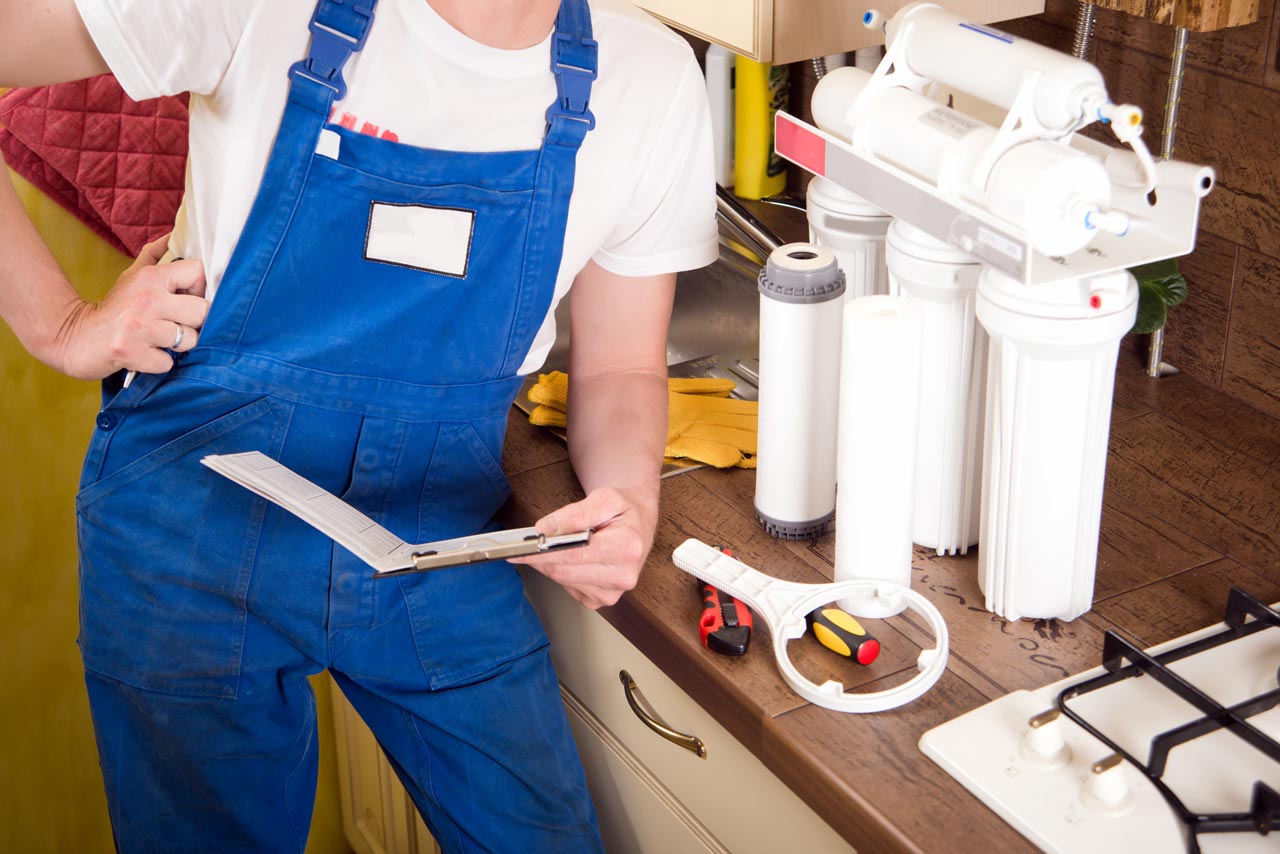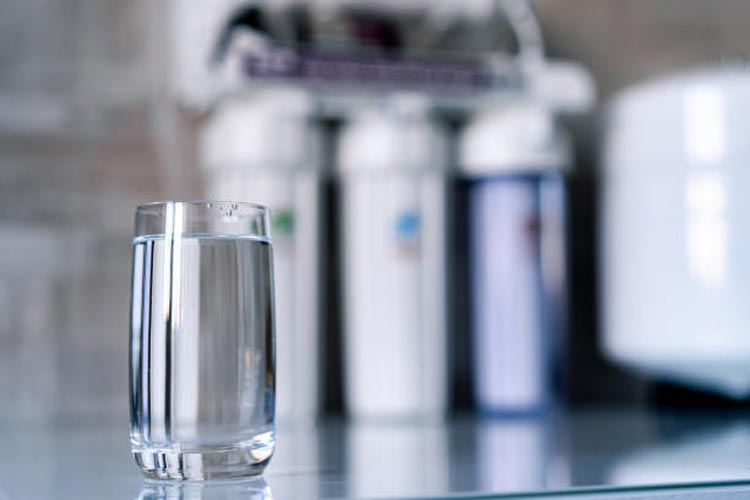
You’ve probably come across reverse osmosis (RO) water softener systems while looking for ways to get the purest and healthiest water in your home. Reverse osmosis is widely regarded as one of the most effective water filtration systems, producing clean, flavorful water.
However, while reverse osmosis is a very effective method of filtering different types of contaminants and impurities from water, there are situations where other water filtration systems may provide better overall results.
But what is reverse osmosis, and how is it beneficial? Below, we’ll examine what reverse osmosis is, its benefits, and other things to look out for before purchasing a water filtration system for your home.
If you would like to learn more about some of the high-quality water filtration services available, the experts at Puragain Water are here to help you choose the best water filtration solution for your needs.
What Is A Reverse Osmosis Water Filtration System?
A pre-filter removes sediment and chlorine from the water before putting it through a semipermeable membrane to remove dissolved particles in a reverse osmosis water filtering system. After the water exits the RO membrane, it passes through a post-filter to polish the drinking water before entering a dedicated faucet.
This water purification uses high pressure to force water through a special reverse osmosis membrane. The membrane in the filter will remove all impurities from the water, including microscopic contaminants.
Reverse osmosis systems typically include several stages of filtration, each of which removes a different substance from the water. A mineral filter is frequently used at the end of the chain to reintroduce essential minerals into the water.
As a result, drinking water from reverse osmosis systems is extremely healthy. Furthermore, these minerals contribute to the taste of your water, so reverse osmosis water gives a crisp and refreshing taste.
What Is Not Removed By Reverse Osmosis?
As some contaminants are molecularly smaller than water, reverse osmosis is not always the filtration system people expect to provide clean and clear water. Pesticides, herbicides, fungicides, dissolved gasses, and organic compounds are some typical contaminants that pass through an average osmosis water filtration system.
Furthermore, while reverse osmosis can remove various levels of chlorine, the average household RO system may not be able to collect all of the chlorine present in water. This will, however, be largely determined by the chemical concentrations in your home’s water supply.
Things To Consider Before Purchasing A Reverse Osmosis Water Filtration System
Reverse osmosis is a highly effective water treatment process that allows you to manage a wide range of potential pollutants and impurities in your drinking water. However, while it is a great water filter option, there are some things to keep in mind before selecting this option for your home.
Filters Are Required To Ensure An Optimal Reverse Osmosis Membrane
In the reverse osmosis stage, the pre-filters on an RO system actually protect the membrane. If a user does not replace these pre-filters in a timely manner, chlorine breaks through the reverse osmosis membrane. Unfortunately, even low levels of free chlorine can irreversibly damage most RO membranes, requiring the replacement of the entire module.
Extensive Installation Is Necessary
Most people who purchase a reverse osmosis system believe they will be able to install it themselves. However, most people change their minds after learning that they will need to drill holes through their drain pipes, countertops, or sink to create a dedicated faucet. In comparison, other water filtration systems can be connected to a faucet in just 15 minutes with no drilling or plumbing experience required.
Unless you are certain of your abilities, plan on spending a few hundred dollars on professional installation. If you have a stone countertop and have a plumber installing the filtration system for you, make sure their insurance covers the possibility of the stone cracking.
Under Sink Storage Might Disappear
Take measurements if you have a garbage disposal to ensure that the filtration system will fit under the sink. You’ll need to make room for the storage tank in addition to the manifold that holds the pre-filters and other components.
Design And Maintenance
Reverse osmosis systems are typically designed to fit under your sink and connect to your home’s main water line. They will have their own dedicated faucet where you can get purified water on demand.
Additionally, the filters will need to be replaced approximately twice a year or more frequently in some systems. They can also be customized to include as many filtration stages depending on your preference.
Contact The Water Filter Experts At Puragain Water Today
Choosing the right water filter system for your needs will depend on what is found in your water, as well as the taste, odor, and quality issues you want to address. The first step in learning more about your home’s water quality is to speak with a specialist.
Are you curious to learn more about the benefits and drawbacks of a reverse osmosis system? The experts at Puragain Water are ready to help. With our team of water filter specialists, you can be confident that your water filtration system is always in good working condition.
Puragain Water has over 30 years of experience in the water filter industry. We know what it takes to create cutting-edge technology that allows us to provide you with the best crystal clear and safe water.
If you’re ready to improve your home’s water quality and enjoy fresh, clean, purified water, contact Puragain Water to speak with one of our experts on water systems you should know about.


